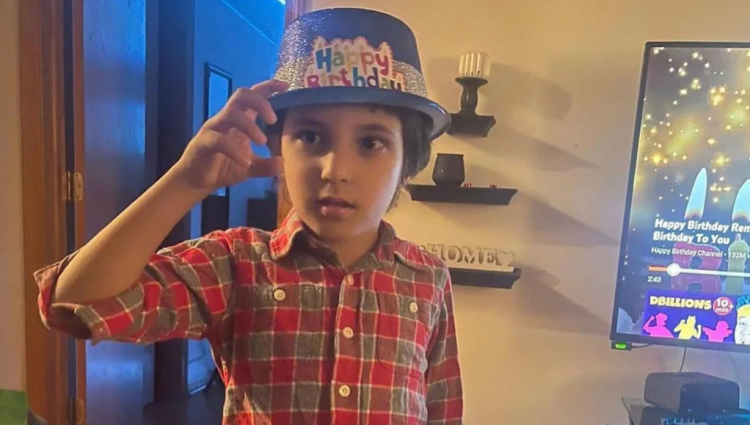In a courtroom drama that has captured the attention of the nation, Joseph M. Czuba, 71, stood before Judge Donald DeWilkins, entering a plea of not guilty to charges relating to the tragic murder of a 6-year-old Palestinian American boy, Wadea Al-Fayoume. The incident, which unfolded near Chicago in Plainfield Township, has reignited concerns about domestic repercussions from international conflicts.
The young boy's horrifying demise occurred when he was stabbed 26 times at his residence. In the same incident, his mother, Hanaan Shahin, 32, sustained over a dozen stab injuries but miraculously survived. The motivation behind the gruesome act? According to the Will County Sheriff's Office, Czuba, the family's landlord, allegedly targeted the victims due to their Muslim faith and the tense political climate surrounding the Hamas-Israel conflict.
During the hearing, where Czuba donned a red county jail jumpsuit, the charges read out were profound: first-degree murder, attempted first-degree murder, two counts of a hate crime, and aggravated battery with a deadly weapon. While Czuba refrained from commenting to detectives, a grand jury had already returned an eight-count indictment against him. If found guilty, he may spend the rest of his life behind bars.

Illinois Landlord Pleads Not Guilty in Hate Crime Murder Echoing International Tensions
While the courtroom drama unraveled, the emotions outside were palpable. Wadea's father, Oday Al-Fayoume, made an appearance, bearing the weight of grief and the international spotlight. According to court records, moments leading up to the savage attack revealed chilling details. Shahin, recalling the fateful moment, stated that Czuba expressed anger about the ongoing turmoil in Israel. Responding with a plea for harmony, Shahin said, "Let's pray for peace." But peace was far from what ensued next.
The Al-Fayoume family, originally from a village in the West Bank, had been chasing the American dream, like many others. Wadea's mother moved to the U.S. 12 years ago, followed by his father three years later. Wadea, born on American soil, symbolized the hopes of a new beginning. His life, brimming with dreams of soccer, space explorations, and school adventures, was tragically cut short.
As the U.S. grapples with this heart-wrenching incident, the reverberations of overseas conflicts are evident. The Hamas-Israel tension has not only fueled global debate but has also ignited divisive sentiments within America, culminating in hate-inspired incidents aimed at Palestinians, Muslims, and Jews alike.
This alarming trend has sounded alarm bells at federal agencies, including the FBI, Department of Homeland Security, and the National Counterterrorism Center. Reports indicate an uptick in threats against the Muslim, Jewish, and Arab communities, reflecting the dangerous importation of overseas tensions.
As leaders, community advocates, and the general public come to terms with Wadea's death, the incident serves as a poignant reminder of the fragility of peace, both internationally and domestically. The White House, too, has weighed in, with President Joe Biden stating, "The child's Palestinian Muslim family came to America seeking what we all seek - a refuge to live, learn, and pray in peace. This horrific act of hate has no place in America."




